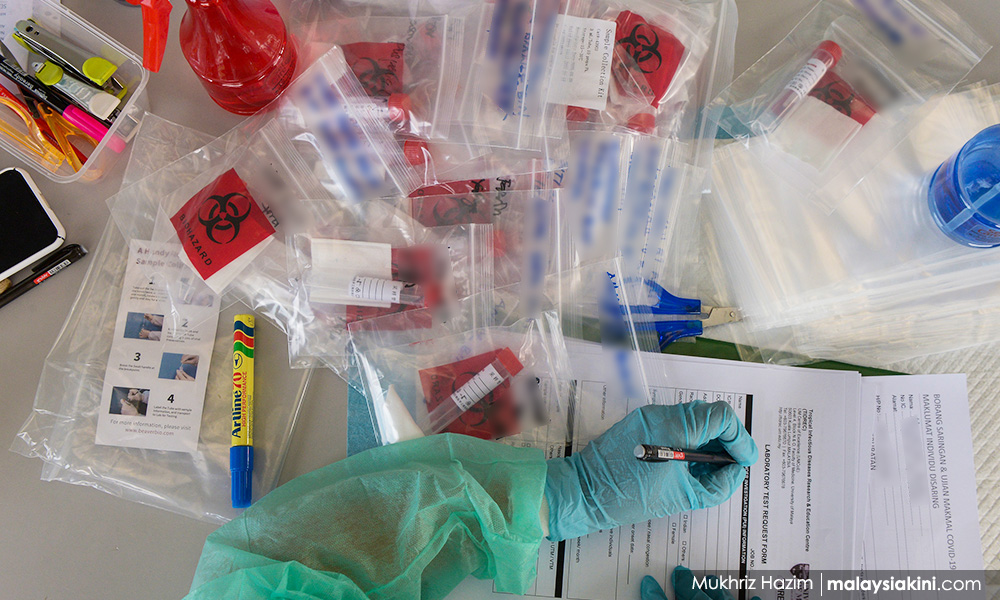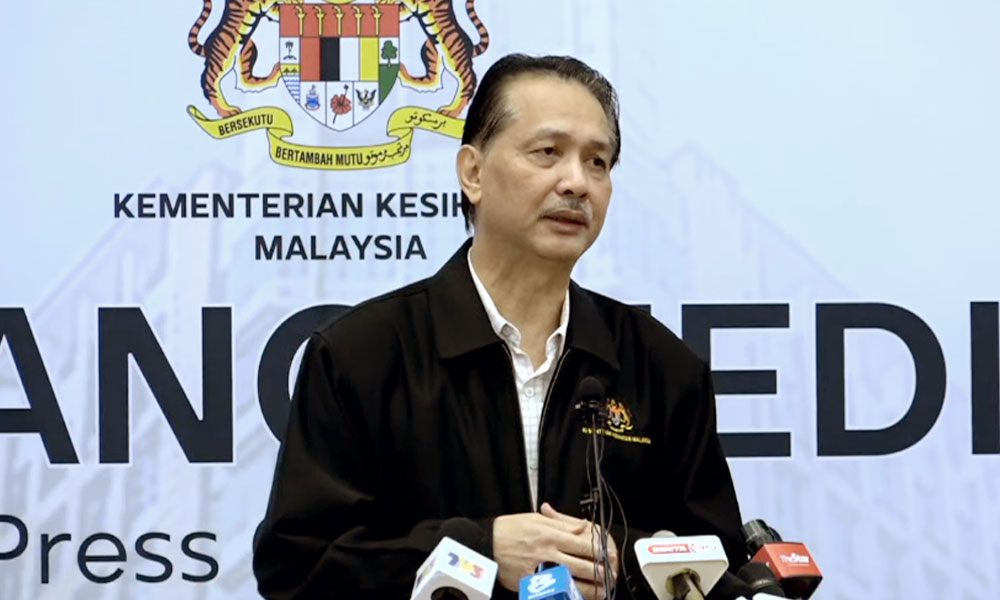Mass testing only for migrants under enhanced MCO with Sri Petaling exposure
CORONAVIRUS | The Health Ministry is targeting its testing measures on non-citizens in certain areas under enhanced movement control order (MCO) who have been exposed to the Sri Petaling cluster.
During its daily Covid-19 briefing today, ministry director-general Dr Noor Hisham Abdullah said that tests were being conducted in Menara City One, Selangor Mansion, Malayan Mansion, Jalan Masjid India and Selayang.
He clarified that the tests will not be extended to all migrant workers in the country.
“These are our localities because the index case has been exposed to the Sri Petaling gathering.
“That’s the reason why we are not taking action on all foreigners.
“Because the high-risk group comprises those who have exposure to the Sri Petaling gathering,” he said when asked.
The Sri Petaling cluster is named so after a tabligh event held at Masjid Sri Petaling from Feb 27 to March 3.
As of noon today, Covid-19 cases in the cluster numbered 2,112 and spanned five generations.
The ministry previously said it would embark on large-scale screening of migrant workers like what Singapore has been doing.

This led Bukit Tengah assemblyperson Gooi Hsiao Leung to question why migrant workers in his constituency had not been tested.
Results of mass testing
Following mass testing in the above-mentioned enhanced MCO areas, Noor Hisham showed that a large proportion of those who tested positive were non-citizens.
- Of the 51 cases in Menara City One, 37 were foreign nationals.
- Of the 166 cases in Selangor Mansion, 150 were foreign nationals. Twenty new cases were detected as of today.
- Of the seven cases in Malayan Mansion, six were foreign nationals.
- All three cases in Masjid India were foreign nationals.
- Of the 46 cases in Selayang, 35 were foreign nationals. Ten new cases were detected as of today.

Overall, Malaysia registered a total of 51 new cases today - far lower than the streak of three-digit increases seen earlier this month.
Testing capacity raised
Meanwhile, Noor Hisham noted that the country has managed to raise its Reverse Transcriptase-Polymerase Chain Reaction (RT-PCR) testing capacity from 11,500 to 16,385 tests per day.
This was as of April 24. This is almost at the ministry’s target of 16,500 tests per day.
Noor Hisham also said the ministry has placed an order for 200,000 antigen-based rapid test kits from South Korea.
“If we get the 200,000 kits next week, we will be able to further increase our testing capacity, perhaps to 20,000 tests per day,” he predicted.
The ministry previously evaluated multiple antigen-based rapid test kits from China and South Korea but found none of them to be accurate enough.
An RT-PCR test result typically takes more than 24 hours because samples need to be taken to a laboratory for analysis.
An antigen-based rapid test kit, however, can be conducted at healthcare facilities with the necessary tools. Results can be delivered within two hours.
Keep up with the latest information on the outbreak in the country with Malaysiakini's free Covid-19 tracker.
Malaysiakini is providing free access to the most important updates on the coronavirus pandemic. You can find them here.
Help keep independent media alive - subscribe to Malaysiakini.
RM12.50 / month
- Unlimited access to award-winning journalism
- Comment and share your opinions on all our articles
- Gift interesting stories to your friends
- Tax deductable

 Annabelle Lee
Annabelle Lee